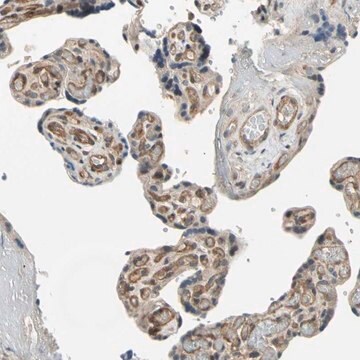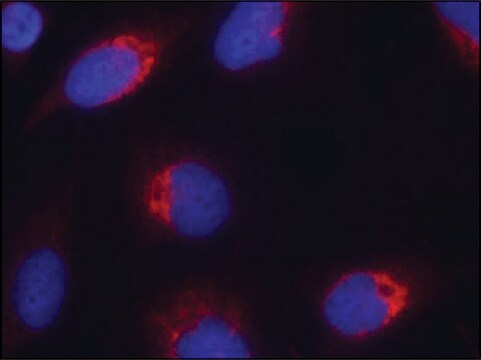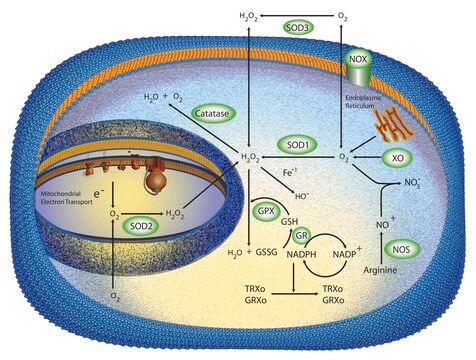Wichtige Dokumente
E7525
Anti-Ephrin-B2 antibody produced in goat
affinity isolated antibody
About This Item
Empfohlene Produkte
Biologische Quelle
goat
Qualitätsniveau
Konjugat
unconjugated
Antikörperform
affinity isolated antibody
Antikörper-Produkttyp
primary antibodies
Klon
polyclonal
Speziesreaktivität
mouse
Methode(n)
flow cytometry: 0.25 μg using 106 cells
immunocytochemistry: 5-15 μg/mL
western blot: 1 μg/mL
UniProt-Hinterlegungsnummer
Lagertemp.
−20°C
Posttranslationale Modifikation Target
unmodified
Angaben zum Gen
mouse ... Efnb2(13642)
Allgemeine Beschreibung
Immunogen
Biochem./physiol. Wirkung
Physikalische Form
Haftungsausschluss
Sie haben nicht das passende Produkt gefunden?
Probieren Sie unser Produkt-Auswahlhilfe. aus.
Lagerklassenschlüssel
12 - Non Combustible Liquids
WGK
WGK 1
Flammpunkt (°F)
Not applicable
Flammpunkt (°C)
Not applicable
Analysenzertifikate (COA)
Suchen Sie nach Analysenzertifikate (COA), indem Sie die Lot-/Chargennummer des Produkts eingeben. Lot- und Chargennummern sind auf dem Produktetikett hinter den Wörtern ‘Lot’ oder ‘Batch’ (Lot oder Charge) zu finden.
Besitzen Sie dieses Produkt bereits?
In der Dokumentenbibliothek finden Sie die Dokumentation zu den Produkten, die Sie kürzlich erworben haben.
Unser Team von Wissenschaftlern verfügt über Erfahrung in allen Forschungsbereichen einschließlich Life Science, Materialwissenschaften, chemischer Synthese, Chromatographie, Analytik und vielen mehr..
Setzen Sie sich mit dem technischen Dienst in Verbindung.







